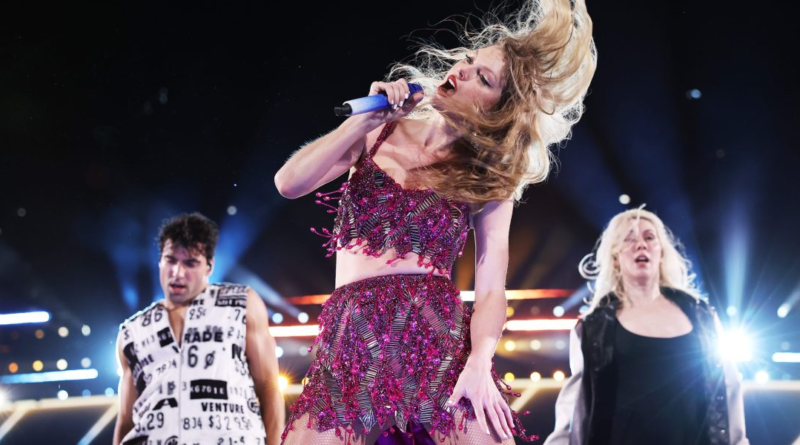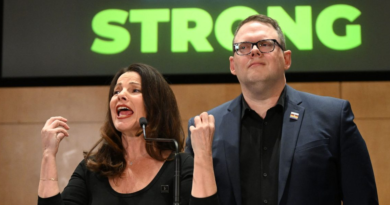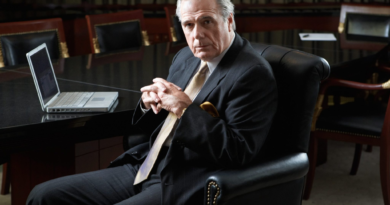Universal Music Group and TikTok went to war over the use of music—now, their deadlock is getting worse and hurting artists and creators
Songs by the world’s most popular artists—think Taylor Swift, Harry Styles and Drake—started to go silent on TikTok over the last few weeks.
The reason? A licensing deal between the largest music label Universal Music Group and TikTok that went awry last month.
Nearly one month on, the two companies, which are crucial to the broader entertainment industry, continue to be in a deadlock. And on Wednesday, TikTok said it would start pulling music off its platform as the two failed to reach an agreement on payments, AI and more.
“Their actions not only affect the songwriters and artists that they represent, but now also impact many artists and songwriters not signed to Universal,” TikTok said in a statement, adding that it was still looking to make an “equitable agreement” with UMG.
But UMG, on the other hand, hasn’t agreed to these efforts as they don’t see TikTok’s offer as compelling enough, sources told the Financial Times.
To put the scale of this problem in context—UMG controls a third of the music in the world, with only 1% of its revenues coming from the Chinese-owned TikTok (as UMG CEO Lucian Grainge said yesterday, the social media app wasn’t a “material part” in global music promotion). The short-video snippet app has over 1 billion users globally, with about 20-30% of the top music on its platform coming from UMG and its publishing arm (though analysts estimate double that number).
But that just pertains to some of the biggest artists—TikTok is also a critical marketing and promotion tool for creators who lean on the platform to give them visibility on social media. The promise it offers for artists—big and small—is immense, as the app has catapulted singers and songs to viral fame in the past—think of Olivia Rodrigo’s Drivers License.
The stalemate could lead to better compensation of artists in the long-run—via a richer licensing deal—which UMG-backed singer Kim Petras said could be worth the current challenge.
“Of course, right now, all of us Universal artists are facing challenges, but you’ve gotta take one for the team,” Petras told the Wall Street Journal. “The intentions behind this initiative are noble, aiming to ensure that musicians are fairly compensated for their art. This extends not only to the chart topping performers but also to the songwriters and individuals working tirelessly behind the scenes.”
A war of words over music
Back in 2021, UMG and TikTok signed a licensing deal that didn’t give the label any share of the social media platform’s revenue—partly because its ad business hadn’t really taken off at the time. But TikTok has since begun making some $20 billion in annual ad revenue, Fortune’s David Meyer wrote last month. That pandemic-era deal expired at the end of January, following which the companies haven’t been able to reach a new agreement.
So, on that day, UMG wrote an open letter where it said that TikTok’s success hinged on that of the music made by artists and songwriters, who weren’t being paid fairly. The music group also highlighted other concerns like the lack of protection for artists against AI-generated tracks.
“TikTok attempted to bully us into accepting a deal worth less than the previous deal, far less than fair market value and not reflective of their exponential growth,” UMG said at the time.
In response, TikTok wrote a fiery response that accused UMG of putting its “own green above the interests of their artists and songwriters” and pushing a false rhetoric.
While the UMG-TikTok issue is only about a month old, the broader debate on music, copyrights and fair value have been a part of the entertainment industry for long. For instance, when Spotify made its debut with a subscription model for music, it changed the dynamics in the music industry. If anything, the conflict between the two giants shows how short video formats, where users can pluck out parts of an audio and turn those into their own snippet, continues to operate in murky waters.
“We’re friendly people… my phone is open, unfortunately, 24 hours a day, and we hope that we will be able to find solutions,” UMG CEO Grainge said during the company’s earnings call Wednesday. “We negotiate and deal with platforms that combined are worth trillions and we’ve been able, with all of them, to create win-win solutions.”
It’s unclear how long the tussle between UMG and TikTok will continue, leaving the remnants of soundless videos behind. But in the meantime, it’s the artists and creators who stand to lose the most from a limited TikTok.
TikTok pointed Fortune to its public statement from Wednesday when approached for comment. UMG didn’t immediately return Fortune‘s request for comment.




